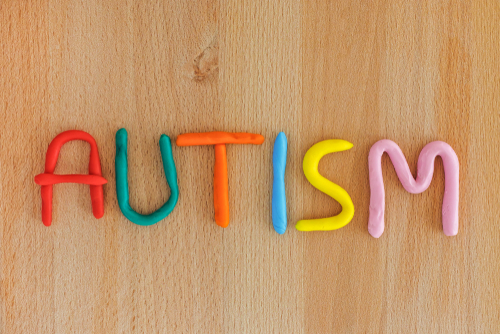 This mother does not love the immense suffering autism brings to her son and family. She invites critics to help, not judge.
This mother does not love the immense suffering autism brings to her son and family. She invites critics to help, not judge.
I feel that over the years, in an effort to show acceptance for people with autism, society has spent a lot of time focusing on the positive characteristics and talents some people with autism portray. In a way, this is a good thing, because for too long society put people like my son Caleb away in institutions because we assumed they were too stupid to understand anything or offer any value to anyone else. We had forgotten that God gives all people value regardless of their intellectual or communicative abilities.
Currently, I think we’re getting to a point where when someone talks about a loved one having autism we immediately start to think of all these success stories, and we forget how challenging and heartbreaking the condition can be for families like mine that are more severely affected.
Caleb is loved and valuable simply for who he is because God created him. We’ve gotten to a point where if you share the fact that you dislike autism, it’s somehow synonymous with saying you don’t love your child. This is ridiculous and untrue.
If your child was blind, deaf, or paralyzed, and you said you hated the disability that prevents them from doing these things, no one would assume you do not love your child. 
Why do we do this to families affected by autism? Why do we make them defend their love for their children?
I think part of the reason is because those who have autism and can speak for themselves have found their identity in their disability. Therefore when we say we hate the disability, they feel we hate who they are.
I’d like to remind people, you’re a person who is valuable, but you’re not your disability.
I struggle with severe social anxiety and depression. It’s not my identity. My identity is Lisa Burger.
I’ve asked Caleb if he wishes he could talk, and he will always point to the answer Yes. So if he could change things, and allow himself to talk, he would.
Does that mean he hates everything about himself and having autism? No. But a part of him does wish he were different “normal.” Like everyone else. And it’s okay for him to wish that, and it’s okay for him to be disappointed that he can’t do the things that the rest of us can do easily.
Caleb is unusual in that he is a savant. Not all severely autistic people are. Caleb can read foreign languages, understand advanced math concepts, and has a photographic memory.
He also smears poop, tries to eat small plastic water bottle caps, gets dirt in his hair to the point where I’m afraid he’s going to go blind if he gets it in his eye, head-bangs and breaks windows in my house and then tries to play with the glass, steals food from everyone around him, scratches, bites, pulls hair, drops to the floor like a toddler even though he’ll be eight this month, and will attempt to wander off in public.
I’m here to tell you right now, it’s okay for families like mine to hate this side of autism. It doesn’t mean we hate our children.
We hate their suffering. We hate worrying that they’re going to hurt themselves or someone else. We hate the suffering it causes us as parents, and the suffering it causes their siblings. We hate not having enough time to pay attention to our other non disabled children because our attention is taken up with the child who needs more help. We hate not being able to attend certain events because our child with a disability can’t handle it, and watching our other children miss out on things they would enjoy because their sibling cannot handle it.
People seem to think that I’m particularly gifted in the area of autism, but I’m not. My son didn’t come with an instruction manual. He came with a disability, and parents who love him who are willing to learn along the way. Really, that’s all it takes to help anyone affected by disability. Willingness.
Caring for others involves getting out of your comfort zone and doing something difficult in order to make someone else’s life better, even if that means saying, “Lisa, you look super tired and emotionally exhausted, why don’t you go sit down and take a break while I scrub the poop off the walls….” Offer practical help. It might be hard to watch a child with a disability for one day. I promise you it’s harder for the people who watch them everyday.
Source: ncsautism.org






